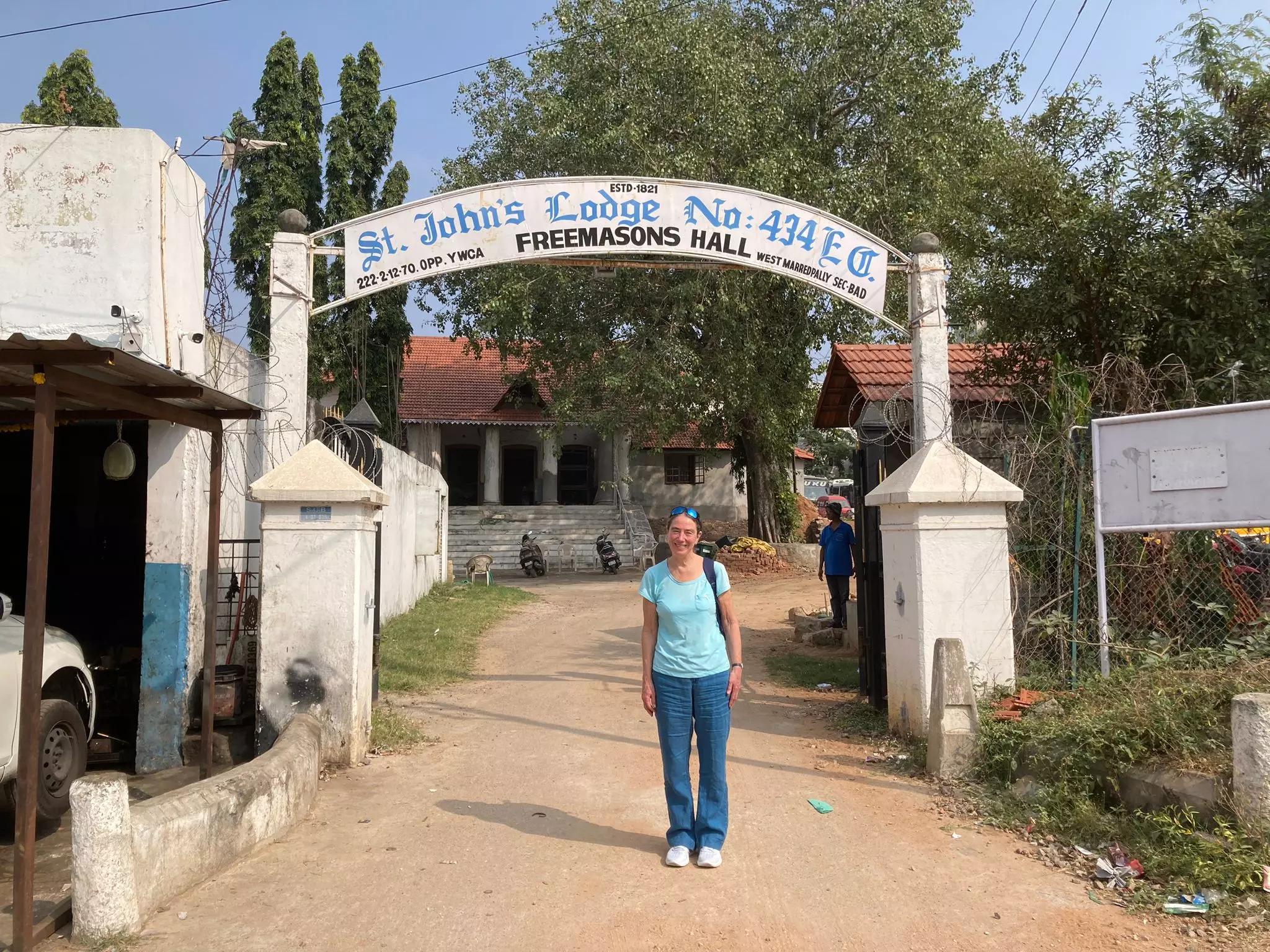British woman traces her family history to Secunderabad

Hyderabad: History books often provide insights into rulers, places, and monuments of the past, but can a personal history be intertwined with the social and political history of a place?
Alison Gilchrist, a retired community development worker from Kendel, England, embarked on an extraordinary journey to trace her ancestors in India — an endeavour that led her to Secunderabad, where her family’s story spans multiple generations.
Alison’s only initial connection to India was through stories that her grandmother told her in childhood. Through persistent research, she was able to trace her roots back five generations, discovering that her ancestors had lived in India, with some even buried in Secunderabad.
One of the most significant revelations was about her great-great-grandfather, Philip Sharkey Hudson. A divisional engineer in the Nizam's public works department, Hudson was born in 1840 in Srikakulam (which was a part of the Madras Presidency) and died in the Nizam state of Hyderabad (now Telangana) in 1888.
He worked on irrigation projects in Secunderabad and Hyderabad, and later moved to Warangal, where he was buried — Nagalakutta, to be precise. His will shows that he was living in Bhongir in 1886. Hudson was married to Margaret Victoria Maitland, whose family had strong Indo-British ties.
Their son, Charles William Maitland Hudson, is Alison's great-grandfather. Philip Hudson and Margaret lived in the then Chaderghat Municipality area (which included many newly developed areas of the day in the north of the Musi), and many of their descendants are buried in the St. George’s Church cemetery at Abids in Hyderabad.
Philip Hudson was also a prominent member of the St John’s Freemasons Lodge in Secunderabad. The Lodge, founded in 1822, has a rich history, with his name listed among its early members. Its connection to St John’s Church, opposite the Secunderabad Clock Tower, adds another layer to Alison’s family’s link to the city’s history.
Alison’s search for her roots began with her grandmother’s stories and a desire to understand her Eurasian heritage. Her mother was born in Sri Lanka, and her family had connections to Ceylon, Pune, and Mumbai. After her brother’s untimely death, Alison took up his research, diving deep into her family’s past. She described the process as an adventure, driven by a desire to make history meaningful for future generations.
"My nieces and nephews have some interest, and I hope my research can have a lasting impact on them," Alison said. "This journey is daunting — it could take a lifetime, but it feels necessary."
To document her family’s history, Alison gathered photographs, birth, marriage, and death certificates. Using resources like the book ‘Church in India’, she traced the churches where her ancestors were baptised, married, or buried. Her research revealed many stories of women who were abandoned, children orphaned, or adopted in India, highlighting the personal connections her family had to the country.
During her travels, Alison reflected on her family’s legacy in India. "I didn’t want to come across as a colonialist," she shared. "But the faces and names of my ancestors gradually became real to me. Many of them made India their home, and are now buried here."
The journey, however, was not without its emotional challenges. "While I feel privileged to be connected to such remarkable people, there is also sadness," Alison said. "Many children died young, and I’ve seen that reflected in birth and death records. For instance, my great-great-grandmother, Margaret Maitland, likely died in childbirth, and her daughter, my great-grandmother, died of cholera at 18. These stories remind me of the hardships they endured."
One poignant discovery was the Sharkey Memorial Missionary School in Machilipatnam, founded in 1843 by John Edmund and Amelia Sharkey, Philip’s son. Though the school closed in 1938, it was revived in 1966 and is now known as Noble College, affiliated with Krishna University.
In addition to family history research, Alison took courses on oral history and documentation, deepening her understanding of both British and Indian history. "My research has brought me closer to my family’s legacy, and to the broader history of this region," she said.
Through this journey, Alison Gilchrist not only uncovered her ancestral past but also forged a meaningful connection with India’s rich history, weaving together personal and regional stories that span across generations and laid across cities in South India.
